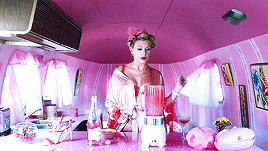tswift:When I was a teenager, I would hear people talk about sexism in the music industry, and I’d b
tswift:When I was a teenager, I would hear people talk about sexism in the music industry, and I’d be like, I don’t see it. I don’t understand. Then I realized that was because I was a kid. Men in the industry saw me as a kid. I was a lanky, scrawny, overexcited young girl who reminded them more of their little niece or their daughter than a successful woman in business or a colleague. The second I became a woman, in people’s perception, was when I started seeing it. It’s fine to infantilize a girl’s success and say, “How cute that she’s having some hit songs. How cute that she’s writing songs.” But the second it becomes formidable? As soon as I started playing stadiums—when I started to look like a woman—that wasn’t as cool anymore. It was when I started to have songs from Red come out and cross over, like ‘I Knew You Were Trouble’ and ‘We Are Never Ever Getting Back Together.’ The angle was different when I started saying, “I knew you were trouble when you walked in.” Basically, you emotionally manipulated me and I didn’t love it. That wasn’t fun for me. I wanted to say to people, “You realize writing songs is an art and a craft and not, like, an easy thing to do? Or to do well?” People would act like it was a weapon I was using. Like a cheap dirty trick. “Be careful, bro, she’ll write a song about you. Don’t stand near her.” First of all, that’s not how it works. Second of all, find me a time when they say that about a male artist: Be careful, girl, he’ll use his experience with you to get—God forbid—inspiration to make art. -- source link
#tswift







